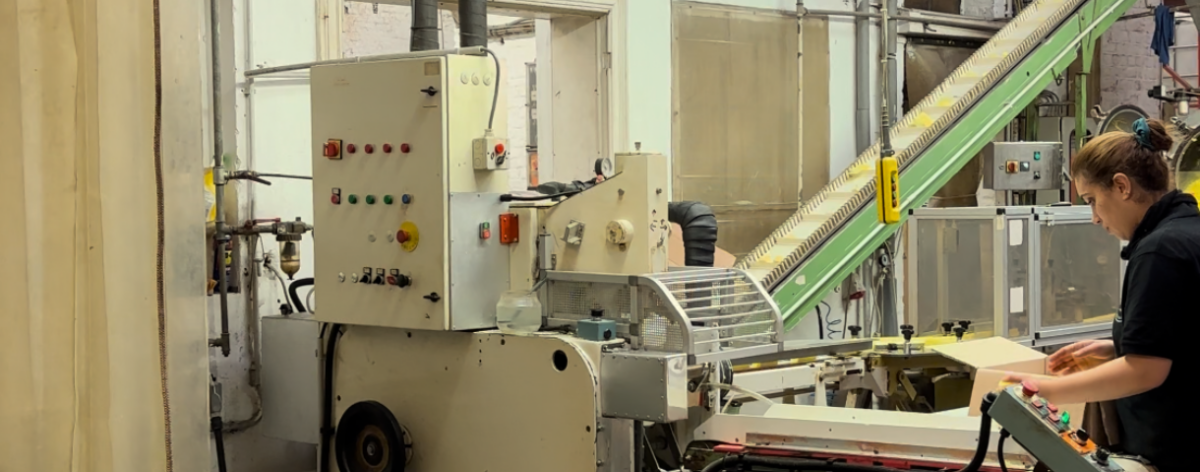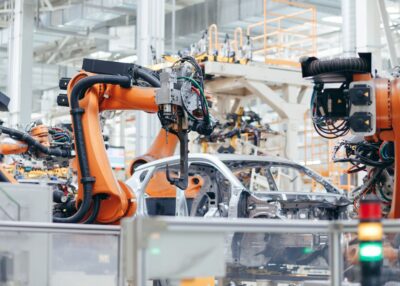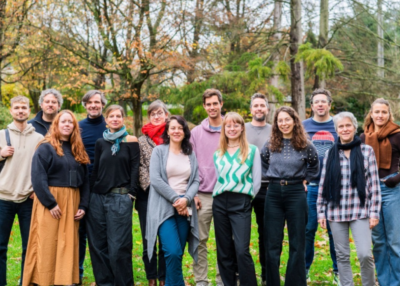
Why and how reindustrialising Brussels
The gradual relocation of Brussels industry has had serious consequences for the Region in terms of pollution, traffic jams, loss of skilled jobs, drop in local innovation and dependence on international supply chains. This situation distances citizens from production processes and slows the transition to a circular economy, which is vital for the environment.
In this context, circlemade, our circular economy cluster, has created a working group of local industrial players to create a new way forward: production in the city that provides jobs and value, is sustainable and meets the needs of Brussels residents.
Why reindustrialise Brussels?
Now that urban areas are home to more and more of the population, local production is emerging as a strategic lever for meeting climatic, economic and social challenges. The proximity of urban industries encourages short circuits, creates local jobs and encourages more responsible consumption.
In Brussels, for example, circular industries provide an innovative solution by integrating the recycling, upcycling and recovery of materials to produce eco-designed goods adapted to local needs. By supporting these industries, Brussels is committing to a strong local economy and greater resilience while promoting more responsible consumption for its residents.
Ten incentives to keep industry in the city
In 2023, the circlemade cluster expanded its strategy to further support Brussels circular production companies, which were facing increasing challenges. As a result, the cluster issued a series of recommendations to make urban industry profitable and competitive on a sustainable basis.
1) Preserving and adapting production spaces
The scarcity of industrial land makes sharing space and securing long-term leases essential. The creation of regional hubs – shared manufacture, storage and logistics sites – should offer a sustainable solution for small, fast-growing circular industries.
2) Facilitating access to local raw materials
To support circular production, the circlemade working group recommends facilitating access to flows of quality waste for recycling. Closer collaboration with the Brussels players responsible for collecting and taking back equipment and waste could provide local businesses with secondary resource sources, thus generating a virtuous cycle of reuse and limiting the environmental impact.
3) Encouraging innovation
Circular industry in the city benefits from technological advances so it can integrate innovative production methods suited to urban spaces. Digitalisation, robotics and 3D printing, among other things, enable companies to develop products in small series while minimising their ecological footprint. Industry 5.0 allows them to put people at the heart of the process.
4) Simplifying access to permits and funding
Permit procedures and access to finance are major obstacles. Circlemade recommends reducing the time required to access permits and maintaining the increased access to bonuses and finance to facilitate the launch and growth of circular businesses.
5) Developing training tailored to circular industry professions
Given the need for skilled labour, it is crucial to work with training centres to prepare a new generation of talented Brussels workers for circular production professions, particularly those with a labour shortage (electromechanics, repairs, etc.).
6) Integrating the circular economy into taxation
Taxation can encourage the circular economy by reducing taxes on local labour and repairs or adjusting VAT on reconditioned (or even upcycled) products. This would make products derived from recovery more competitive with new goods from the linear economy.
7) Integrating the value chain vertically
Circular industries must aim for vertical integration, i.e. control of every stage of production right up to sale to the end consumer, if they want to ensure their long-term survival in the city. Adopting a service model with an ongoing customer relationship allows them to maximise added value without using intermediaries and better absorb urban production costs.
8) Facilitating the mobility and logistics of goods
Urban logistics are a challenge for circular industries. Circlemade proposes integrating sustainable transport solutions and medium-sized distribution centres in each municipality to enable optimised delivery in urban areas.
9) Boosting research and development
Circlemade recommends strengthening the links between circular companies, research centres, universities and regional organisations to boost innovation in production technologies adapted to urban spaces. R&D in eco-design and the manufacture of smaller equipment are vital if these companies are to be competitive.
10) Improving and encouraging scaling-up
Circular industries face specific challenges when they grow. Circlemade suggests greater support in terms of digitalisation, process structuring and access to funding to help companies scale up while maintaining sustainable production.
These recommendations aim to make Brussels a pioneering capital, where local production and economic resilience go hand in hand.
Plus de nouvelles sur notre blog

After Audi: Brussels foreign trade in the first half of 2025
Posted on 28/01/2026
